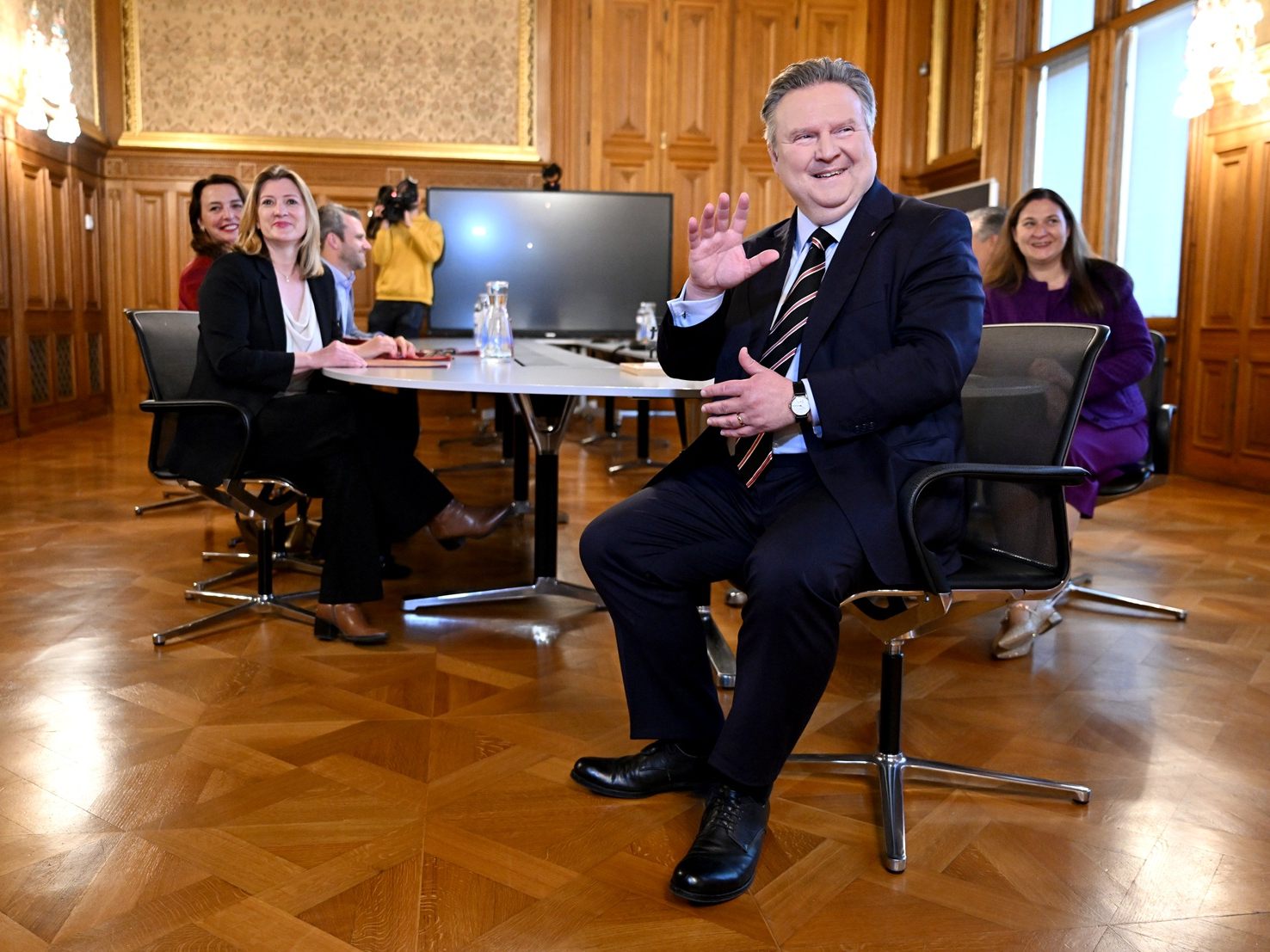Final Sprint for Vienna Government Negotiations

In Vienna, the government negotiations between SPÖ and NEOS are reaching the finale. According to reports, a coalition agreement is expected to be presented at the beginning of next week. It is considered certain that an agreement will be reached. Both sides emphasize that the negotiations are going well. Therefore, the necessary approval from the party committees should not pose a hurdle. The city Reds have been governing with the NEOS since 2020.
SPÖ and NEOS with Majority
The result of the Vienna election on April 27 allows the two parties to continue their cooperation. The state party chairman of the SPÖ, Mayor Michael Ludwig, conducted exploratory talks after the election. He then announced his intention to start negotiations with the current partner.
Officially, both sides are still keeping quiet about the course of the coming days. However, the most likely scenario is that the agreement will be presented together on Monday or Tuesday of next week. The SPÖ is said to have already scheduled party committee meetings for Wednesday.
According to their statutes, the NEOS must convene a state member assembly to approve the pact. A date for the meeting has not yet been communicated, but the event is expected to take place over the Pentecost weekend. The following week, the inaugural session of the municipal council is also expected to be held.
One Mandate Less
SPÖ and NEOS made slight gains together in the Vienna election. The SPÖ lost slightly and reached just under 40 percent. The NEOS managed to surpass the 10 percent threshold. Overall, there is a very small increase, which does not even amount to one percentage point. This did not have a corresponding effect on the mandates - on the contrary: the Reds lost three seats in the municipal council, while the NEOS gained two.
The governing factions thus had to endure the loss of one mandate. In total, they will have 53 (out of 100, note) seats in the future municipal council. The situation is similar with the seats in the city senate, which currently consists of twelve people. If the size remains the same, the SPÖ would only have five instead of the previous six city councilors.
However, the size of the city senate must change in any case, as Red-Pink would otherwise not have a majority in the body. In Vienna, there is a special form of proportional system, distinguishing between "executive" and "non-executive" city councilors. The latter are those of the opposition, who do not have any departments. However, they are allowed to participate in the city senate meetings and vote there.
Decision by City Council
The total number of city councilors, which must be between nine and 15, is decided by the city council. However, the distribution itself cannot be carried out at will. It is based on the strength of the parties' mandates. Currently, the SPÖ has six government members, and the NEOS have one. The ÖVP and the Greens each have two city councilors, and the FPÖ has one.
If the size of the city senate remains at twelve seats, the list after the election would now look as follows: The ÖVP would only be able to claim one city councilor, and the SPÖ only five. For NEOS and Greens, nothing would change. The FPÖ, on the other hand, would receive three seats.
This would mean that the governing parties, with their six members, would not have a majority and could not pass resolutions. However, if it is decided to elect 13 city councilors this time, the one additional seat according to the distribution key would go to the SPÖ. The coalition would thus have more seats than the opposition. This is also considered by far the most likely option.
Reduction also possible
In theory, the city senate could also be reduced to eleven or ten seats, which would be at the expense of the FPÖ and, in the case of the ten-seat option, at the expense of both the FPÖ and the Greens. A Red-Pink majority would thus also be achieved. However, the reduction of the red city council group would be sealed. The responsibilities of the SPÖ would have to be divided among five people instead of the previous six.
(APA/Red)
This article has been automatically translated, read the original article here.





